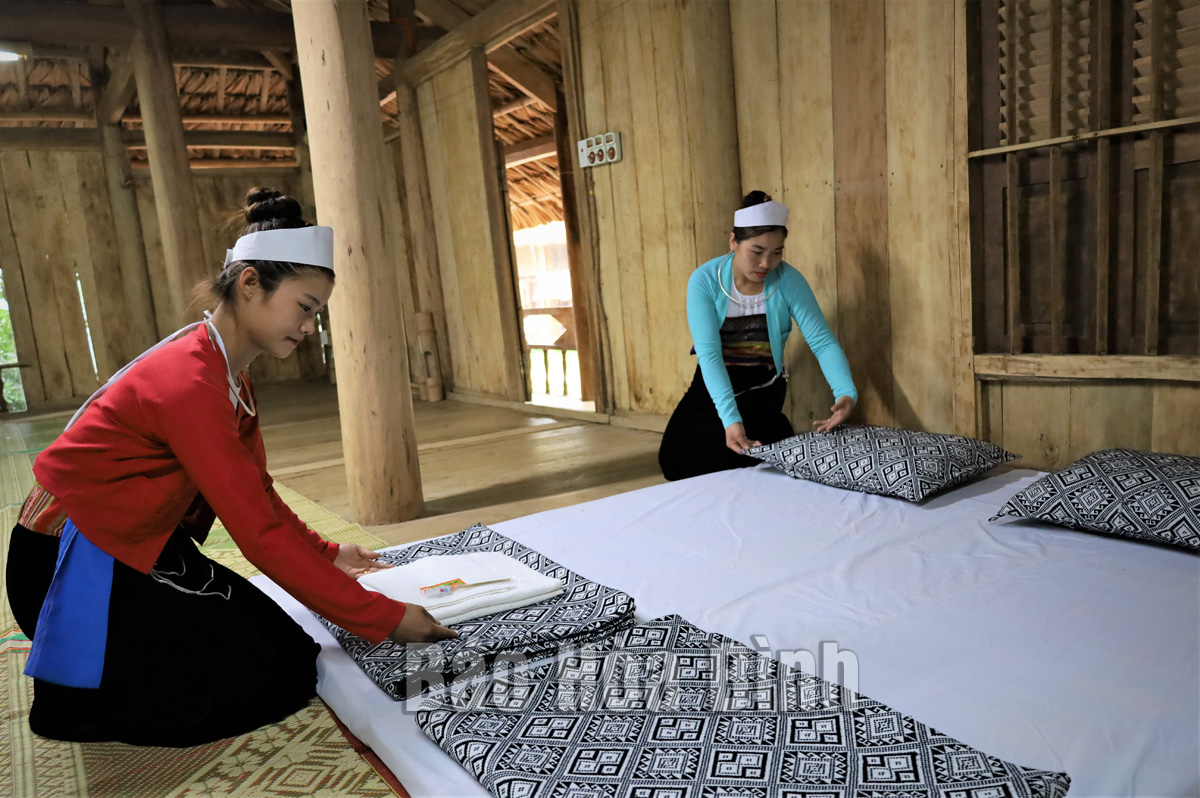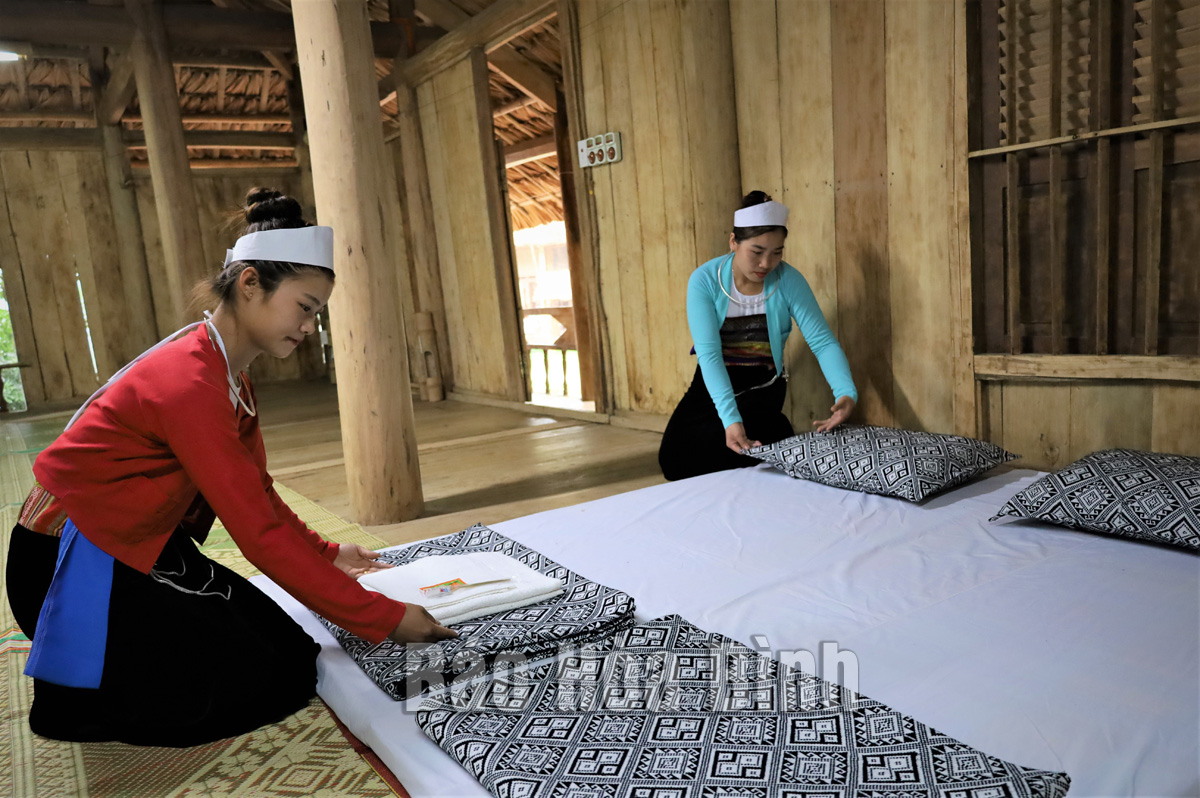
(HBO) – Located 70 kilometers west of Hanoi, the Hoa Binh reservoir in the northern mountainous province of the same name is dubbled as "Ha Long bay on mountain”. Formed during the construction of Hoa Binh hydropower plant, the lake is Vietnam’s largest man-made lake that boasts majestic primitive mountain landscapes and diverse ecosystems.
With 47 islets scattering the water surface and peaceful
villages of Muong ethnic group stretching along its banks, Hoa Binh reservoir
has become a tourist attraction, providing various interesting experiences of
the land, its people and traditional customs.

The community-based tourist spot in Ngoi hamlet, Suoi
Hoa commune, Tan Lac district, leaves many good impressions on visitors about
the Muong cultural identity).
Ngoi hamlet, Suoi Hoa commune in Tan Lac district is one of
community-based tourism villages of the Muong ethnic group that is praised by
tourists for its charming. Coming to the hamlet, visitors can learn about
cultural life of the local ethnic people through stilt houses, and traditional
customs and practices.
Besides various well-known community-based tourism villages such
as Mo hamlet in Binh Thanh commune, Cao Phong district, many new ones of this kind
have been developed like Ke hamlet in Hien Luong commune, Da Bia village in
Tien Phong commune, Sung hamlet in Cao Son commune, and Tien hamlet in Thung
Nai commune.
Notably, the Da Bia Community Tourist Resort was awarded
the ASEAN Community Tourism Award at the Hong Kong (China) Travel Forum.
Currently, many eco-tourist sites such as Mai Chau Hideaway, Ba Khan Village
Resort, and Coconut Island have become attractive destinations for both
domestic and foreign visitors.
The lake area is also luring a number of investment projects
such as the Robinson Natural Park Project of Hoa Binh Tourism Investment joint
Stock Company, Hoa Binh Lake Ecological and Resort Project of Lac Hong
Investment joint Stock Company, and Ngoi Hoa Ecological Park Project of Hoang
Son Construction Energy Investment joint Stock Company.
In 2022, Hoa Binh Lake tourism area welcomed about 400,000
visitors, and it is forecast to receive about 500,000 visitors a year in the
coming time.
Local
authorities have actively popularised new tourism products, strengthened links
with localities in the province and nationwide to create a diverse tourism
ecosystem, attracting more domestic and international visitors to the land of
"Ha Long Bay on the mountain"./.
A diverse chain of eco-tourism and resort destinations concentrated in Hoa Binh city and the districts of Tan Lac, Da Bac, and Luong Son… Along with the launch of several key high-quality resort tourism projects, these developments have reshaped the landscape and enhanced the appeal of Hoa Binh as a travel destination.
Boasting diverse terrain, a mild climate, and rich natural resources, Cao Phong district is increasingly asserting its place on Vietnam’s tourism map, attracting both domestic and foreign visitors. The district is renowned for its stunning landscapes, majestic mountains, a crystal-clear hydropower lake, and the unique cultural identity of local ethnic groups.
With its pristine landscapes, unique cultural heritage of Muong ethnic minority, and an expanding range of visitor experiences, Tan Lac district of Hoa Binh has fast become a captivating destination for both domestic and international tourists.
Until now, Sung village in Cao Son commune, Da Bac district remains the only Dao ethnic community in Hoa Binh province to develop a community-based tourism model. Beyond its untouched natural landscapes, cultural identity serves as the cornerstone attraction for visitors.
Alongside the diverse cultural identities of the Kinh, Muong, Tay, Thai, Dao, and Mong ethnic people, Hoa Binh province is also renowned as the "capital" of the northwestern Vietnamese cuisine, offering unique and distinctive dishes. At festivals, during Lunar New Year (Tet), or on significant family or community occasions, special dishes are prepared, leaving a lasting impression on visitors.
A Phong Linh (Yellow Tabebuia) flower garden in Thang village, Thach Yen commune, Cao Phong district is currently in full bloom, drawing a large number of visitors.



